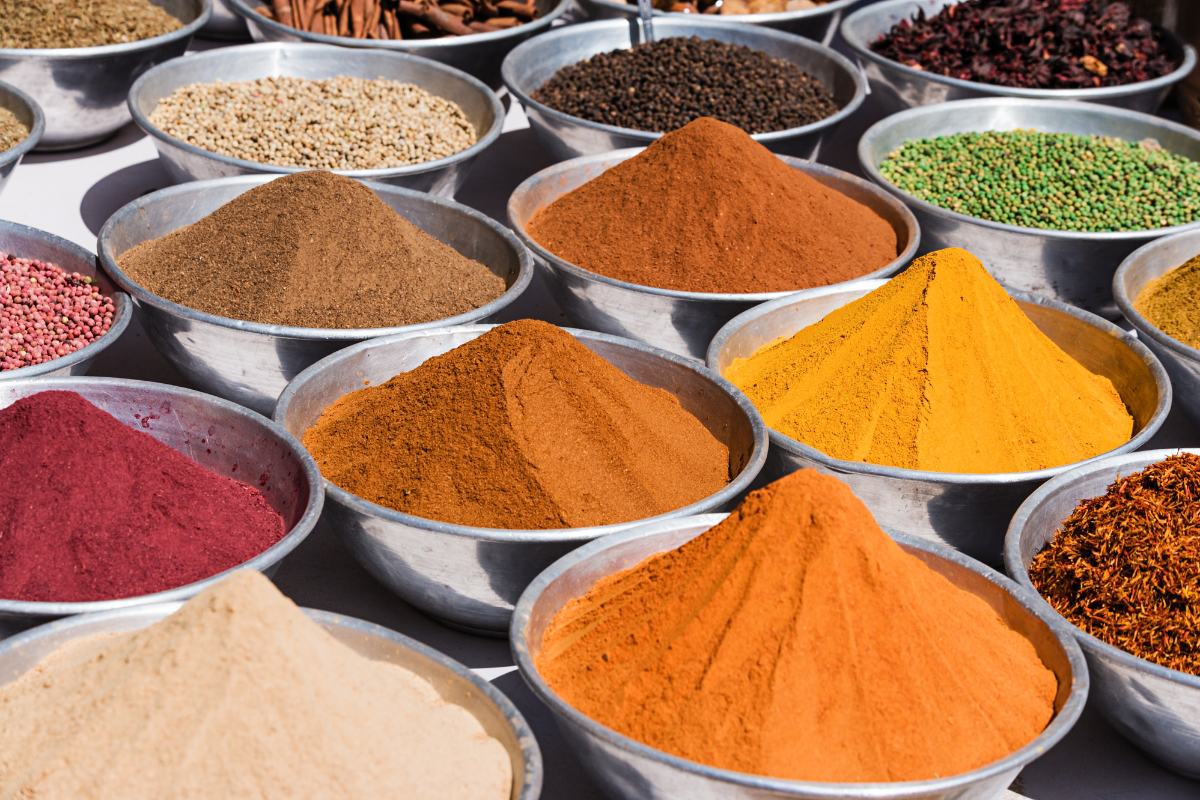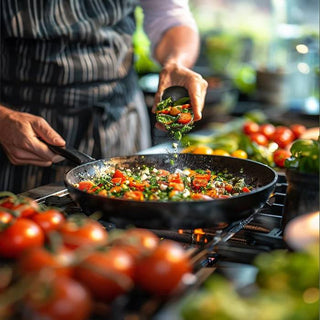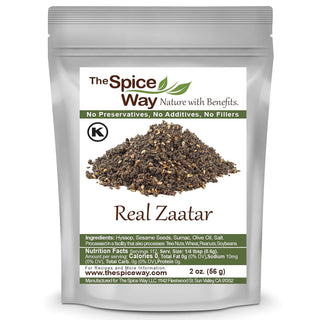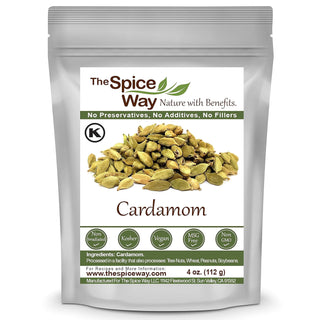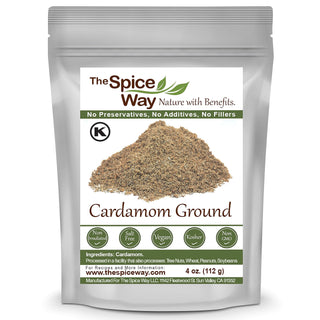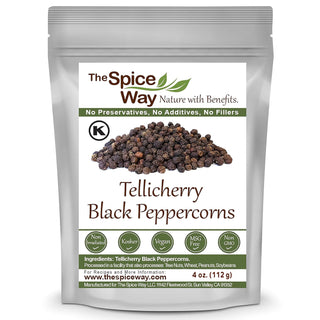Middle Eastern cuisine is celebrated worldwide for its rich flavors and aromatic dishes. One key reason behind this culinary magic is the diverse spices from the region. Whether you are an experienced home cook or just starting your culinary journey, incorporating Middle Eastern spices can elevate your meals.
The Essence of Middle Eastern Spices
These spices are known for their warmth and depth. They are often blended and balanced to create harmonious flavors. Unlike single-note spices, Middle Eastern blends offer sweet and spicy elements.
Here are some of the most popular spices and blends that define Middle Eastern cooking:
1. Sumac
Sumac is a deep red, tangy spice from dried and ground sumac berries. It adds a bright, lemony flavor to dishes without any acidity. To add a fresh citrus punch, it’s often sprinkled on salads, grilled meats, or even hummus.
2. Za’atar
Za’atar is a traditional blend of dried thyme, oregano, marjoram, and sumac. This versatile spice mix is perfect for seasoning everything from bread and vegetables to meats and dips. Its earthy, nutty flavor with a hint of tang is highly aromatic.
3. Cumin
Cumin is one of the most widely used spices in Middle Eastern cuisine. It has a warm, slightly smoky flavor works well in soups. Its distinctive aroma adds depth and complexity, enhancing ingredients' natural flavors.
4. Cardamom
Cardamom is a fragrant spice with sweet and floral notes, often used in savory dishes and desserts. Its unique flavor can transform rice, coffee, and even baked goods into something special.
5. Cinnamon
While cinnamon is often associated with sweet dishes, Middle Eastern cooking uses it in savory recipes. It adds warmth and a subtle sweetness to meat stews and spice blends like baharat.
6. Baharat
Baharat is a spice blend typically consisting of black pepper, paprika, Cardamom, nutmeg, cumin and cinnamon. It’s used to season meat, fish, and vegetables, providing a complex and slightly smoky flavor profile.
How Middle Eastern Spices Enhance Your Cooking?
1. Add Complexity and Depth
Middle Eastern spices bring layers of flavor that transform simple ingredients into extraordinary dishes. Instead of just salty or spicy, they offer a taste medley that balances sweetness, bitterness, and acidity. This makes your cooking richer and more nuanced.
2. Introduce New Aromas
The aromatic nature of spices like Cardamom, cinnamon, and cumin adds a captivating scent to your kitchen and dishes. This sensory experience elevates everyday meals into something more inviting and memorable.
3. Boost Nutritional Value
Many Middle Eastern spices contain antioxidants and anti-inflammatory compounds. For instance, cumin has been linked to improved digestion, and cinnamon may help regulate blood sugar. Using these spices not only enhances taste but also adds health benefits.
4. Versatile in Many Dishes
These spices are incredibly versatile, from roasted vegetables and grilled meats to soups, salads, and desserts. They can be used as dry rubs, in marinades, mixed into sauces, or sprinkled as finishing touches.
Tips for Using Middle Eastern Spices at Home
-
Start Small: If you’re new to these spices, begin by adding small amounts to familiar dishes and gradually increase to taste.
-
Experiment with Blends: Try popular spice mixes like za’atar or baharat to quickly add Middle Eastern flair without the hassle of buying many individual spices.
-
Toast Whole Spices: Toasting whole spices before grinding releases their essential oils, enhancing their flavor.
-
Combine with Fresh Ingredients: Middle Eastern cuisine often pairs spices with fresh herbs like parsley, mint, and cilantro.
-
Store Properly: Keep your spices in airtight containers away from heat and light to maintain their potency.
How to Create Your Own Middle Eastern Spice Blends at Home?
Making your spice blends allows you to customize flavors and control freshness. Here are two essential blends you can try:
Za’atar Blend
-
2 tablespoons dried thyme
-
2 tablespoons toasted sesame seeds
-
1 tablespoon sumac
-
1 teaspoon dried oregano
-
1 teaspoon salt
How to use: Sprinkle on flatbreads with olive oil before baking, or use as a seasoning on roasted vegetables, grilled chicken, or hummus.
Baharat Blend
-
1 tablespoon black peppercorns
-
1 tablespoon coriander seeds
-
1 tablespoon paprika
-
1 teaspoon cardamom pods
-
1 teaspoon nutmeg
-
1 teaspoon cumin seeds
-
1/2 teaspoon cloves
-
1/2 teaspoon cinnamon
How to use: Grind all spices together and store in an airtight container. Use this aromatic blend to season lamb, beef, or fish, or stir it into rice and vegetable dishes.
Bringing Spices into Everyday Cooking
You don’t have to cook traditional Middle Eastern recipes to enjoy these spices. They can complement and enhance a variety of cuisines and everyday meals:
-
Add cumin and coriander to chili or taco seasoning for a warm, earthy twist.
-
Sprinkle sumac on avocado toast or scrambled eggs for a tangy lift.
-
Use za’atar on roasted potatoes or popcorn as a flavorful snack.
-
Add a pinch of cinnamon or cardamom to your morning coffee or smoothie for subtle warmth.
-
Mix baharat into your meatloaf or burger patties for a unique flavor boost.
The Spice Way is the best source for authentic spices that uplift your cooking. Their carefully curated selection of fresh herbs and blends captures the vibrant flavors. Using them in your food and transforming any dish is a good idea. Whether you’re looking for aromatic za’atar, tangy sumac, or fragrant baharat, you simply have to get them from their website. Trusting The Spice Way means bringing a genuine taste of the Middle East right into your kitchen.
Final Encouragement:
Incorporating Middle Eastern spices into your cooking is like opening a door to vibrant, flavorful wellness. You don’t need to be a professional chef or travel halfway across the globe to experience these tastes—your kitchen is the perfect place to start.
Take your time exploring different spices, blends, and recipes. Enjoy the sensory journey and the aromas, colors, and tastes that awaken your senses. These spices are great to bring joy to your meals.
With every pinch and sprinkle, you’re not just cooking—you’re creating stories, memories, and connections around the table. So transform your cooking with these spices and savor the delicious adventure!
FAQS
1. What are some common Eastern spices I should try first?
Popular Eastern spices include cumin, sumac, za’atar, cardamom, and baharat. These spices offer an outstanding balance of earthy and aromatic flavors that enhance a wide range of dishes.
2. How do Eastern spices change the flavor of food?
These spices add depth, warmth, and complexity by combining sweet, savory, smoky, and tangy notes. They create unique flavors in elaborate ways, making meals more vibrant and interesting.
3. Can I use Eastern spices in everyday cooking?
Absolutely! These versatile spices can easily be added to salads, meats, soups, roasted vegetables, and snacks. These boost flavor and add a unique twist to everyday meals.
4. How should I store Middle Eastern spices to keep them fresh?
Store spices in airtight containers away from heat, light, and moisture. Whole spices last longer than ground ones, but both should ideally be used for the best flavor within six months to a year.
5. Are Middle Eastern spices healthy to include in my diet?
Yes, many of these spices contain antioxidants and have anti-inflammatory properties. They can aid digestion and provide other health benefits, making them a flavorful and nutritious addition to your meals.
